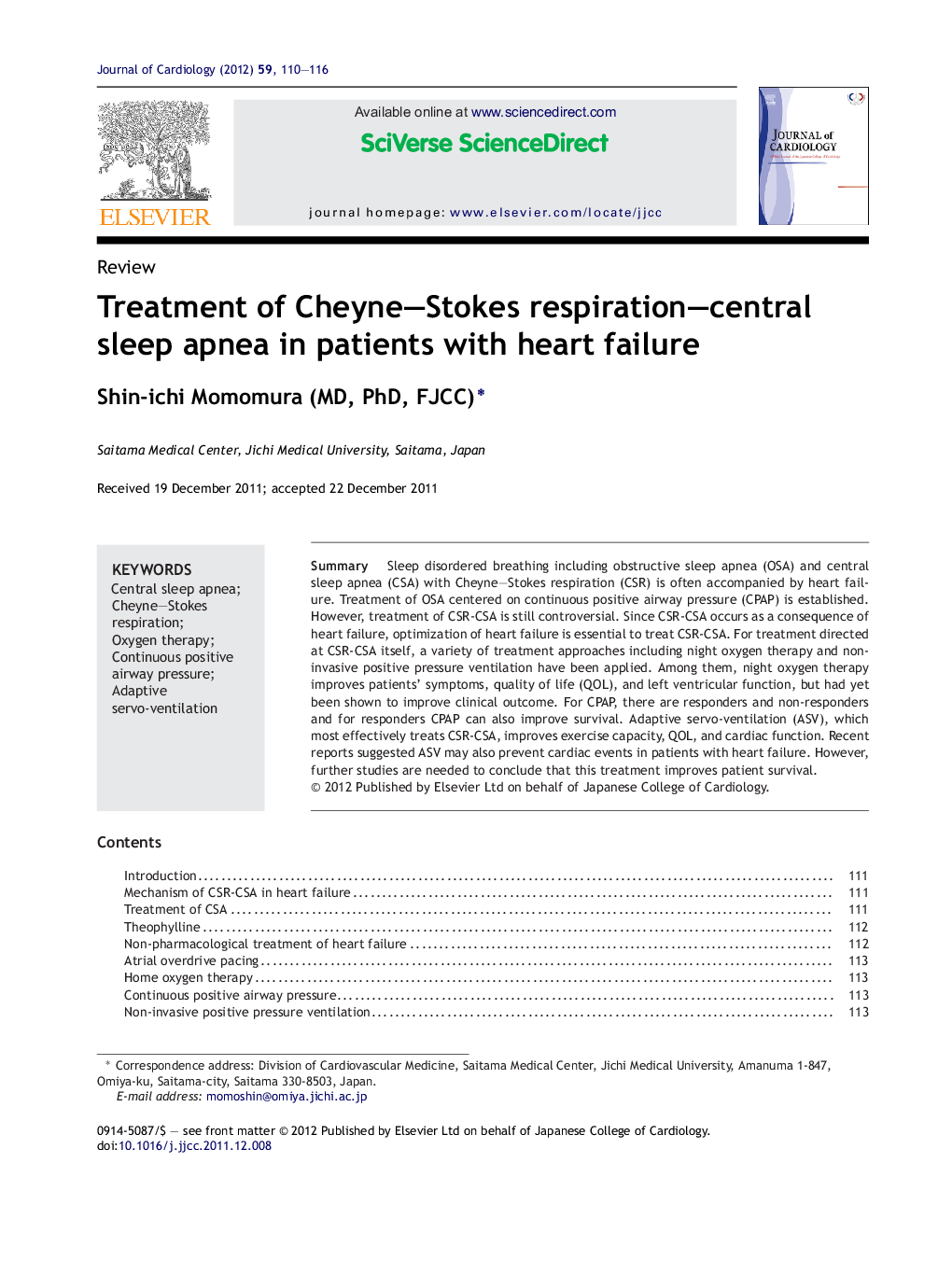| Article ID | Journal | Published Year | Pages | File Type |
|---|---|---|---|---|
| 2963230 | Journal of Cardiology | 2012 | 7 Pages |
SummarySleep disordered breathing including obstructive sleep apnea (OSA) and central sleep apnea (CSA) with Cheyne–Stokes respiration (CSR) is often accompanied by heart failure. Treatment of OSA centered on continuous positive airway pressure (CPAP) is established. However, treatment of CSR-CSA is still controversial. Since CSR-CSA occurs as a consequence of heart failure, optimization of heart failure is essential to treat CSR-CSA. For treatment directed at CSR-CSA itself, a variety of treatment approaches including night oxygen therapy and noninvasive positive pressure ventilation have been applied. Among them, night oxygen therapy improves patients’ symptoms, quality of life (QOL), and left ventricular function, but had yet been shown to improve clinical outcome. For CPAP, there are responders and non-responders and for responders CPAP can also improve survival. Adaptive servo-ventilation (ASV), which most effectively treats CSR-CSA, improves exercise capacity, QOL, and cardiac function. Recent reports suggested ASV may also prevent cardiac events in patients with heart failure. However, further studies are needed to conclude that this treatment improves patient survival.
